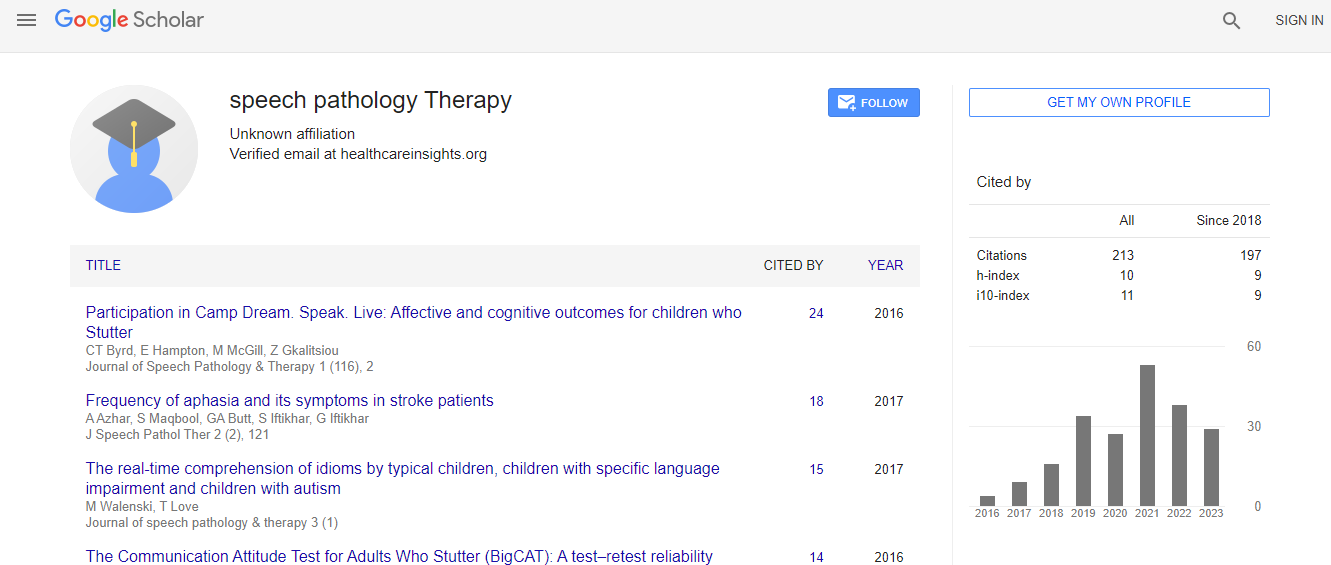Research Article
Child Maltreatment: What Attitudinal Factors Drive Graduate Students in Speech-Language Pathology to Report?
Alan F Smith1*, Rhonda Mattingly1 and Teresa Pitts1,2
1Department of Otolaryngology-HNS and Communicative Sciences and Disorders, School of Medicine University of Louisville, Louisville, Kentucky, USA
2Department of Neurological Surgery and Kentucky Spinal Cord Injury Research Center School of Medicine, University of Louisville, Louisville, Kentucky, USA
- *Corresponding Author:
- Alan F. Smith
Department of Otolaryngology-HNS and Communicative Sciences and Disorders
School of Medicine Louisville, Kentucky, USA
Tel: 502-852-3970
E-mail: alan.smith.1@louisville.edu
Received date: June 02, 2016; Accepted date: October 31, 2016; Published date: November 06, 2016
Citation: Smith AF, Mattingly R, Pitts T (2016) Child Maltreatment: What Attitudinal Factors Drive Graduate Students in Speech-Language Pathology to Report?. J Speech Pathol Ther 1:119. doi: 10.4172/2472-5005.1000119
Copyright: © 2016 Smith AF, et al. This is an open-access article distributed under the terms of the Creative Commons Attribution License, which permits unrestricted use, distribution, and reproduction in any medium, provided the original author and source are credited.
Abstract
Purpose: To understand the factors that predict the likelihood graduate students in speech-language pathology will report maltreatment in order to assist in minimizing its occurrence and child mortality.
Method: Graduate students in speech-language pathologists (N=148) attending accredited programs in the United States were surveyed regarding their attitudes (e.g., commitment, confidence, and concern) toward child maltreatment, including the likelihood they will report alleged abuse and neglect. The study was controlled for ethnicity and gender. The results of the survey were analyzed using hierarchical multiple regression and showed the strength of the relationship between the predictor variables (e.g., commitment, confidence, and concern), including the covariates (e.g., gender and ethnicity) on the criterion variable (e.g., reporting practices). The Theory of Reasoned Action served as the theoretical framework.
Results: The results of the study suggested that the attitudinal dimensions of commitment and concern, including the covariate gender, have a statistically significant contribution to the likelihood that graduate students in speechlanguage pathology will report alleged child maltreatment.
Conclusions: As the attitudinal dimensions of commitment and concern increase, so does the likelihood that graduate students in speech-language pathology will report suspected maltreatment, especially females.
 Spanish
Spanish  Chinese
Chinese  Russian
Russian  German
German  French
French  Japanese
Japanese  Portuguese
Portuguese  Hindi
Hindi 